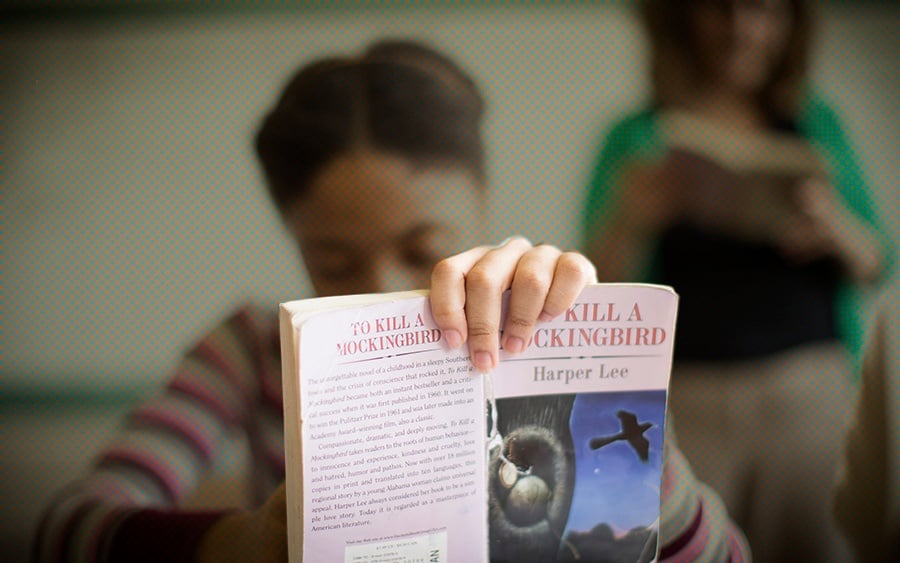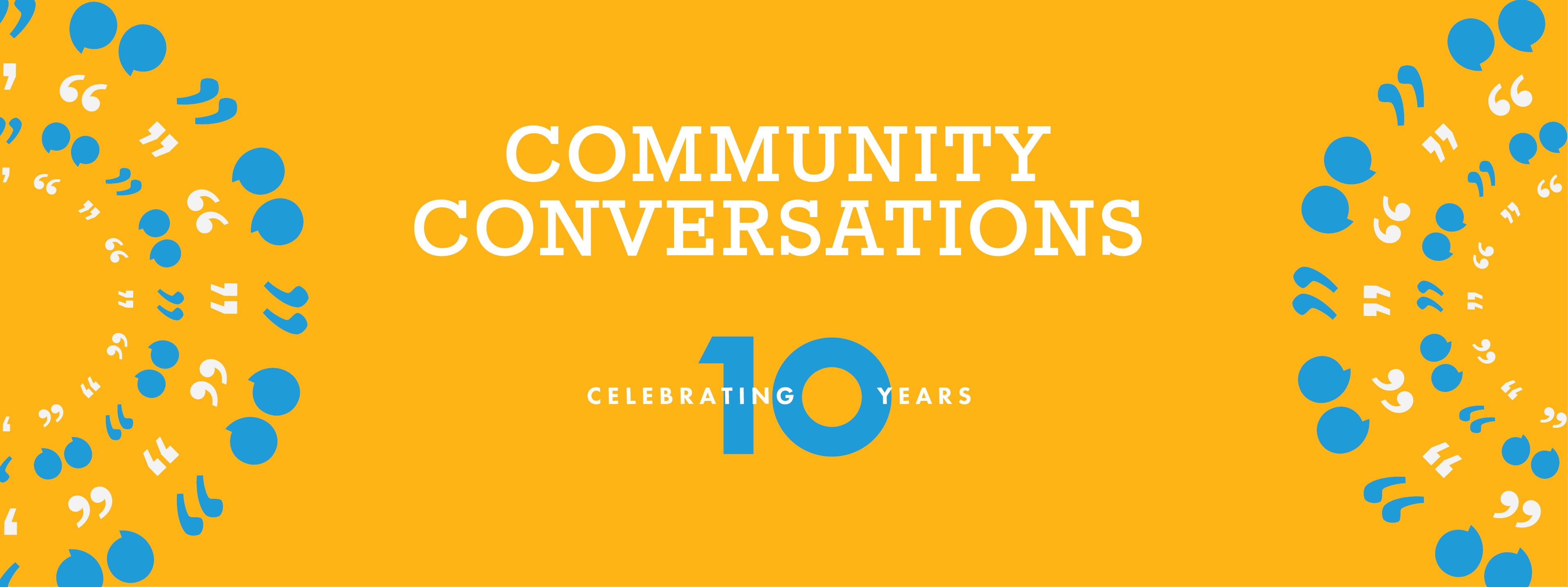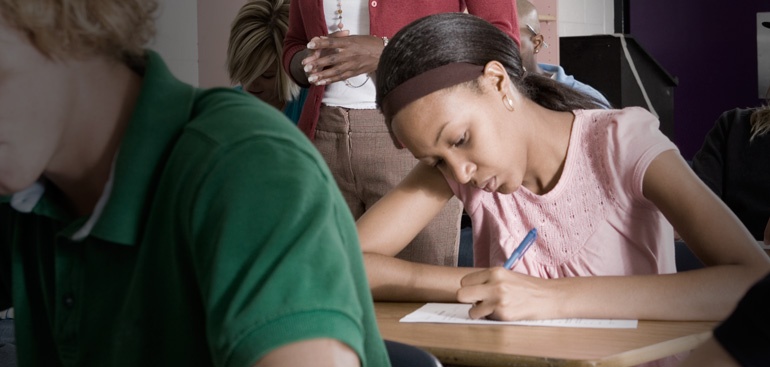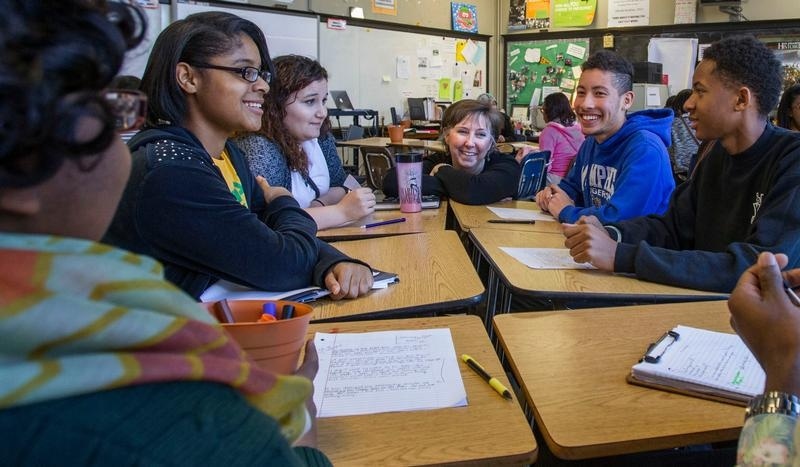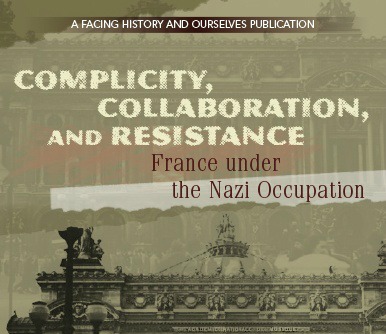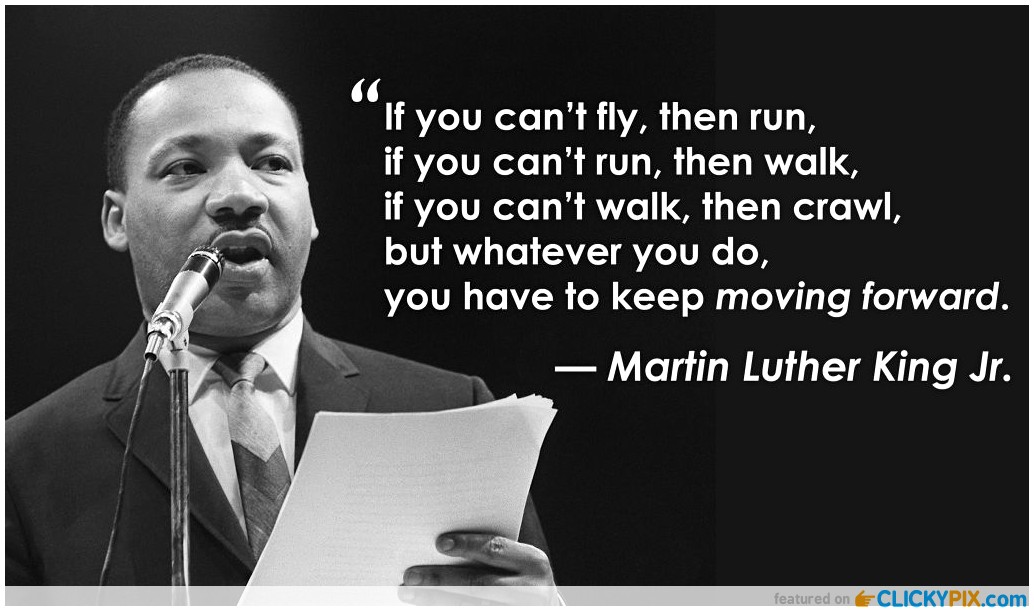Harper Lee's death reminds us that “To Kill a Mockingbird” is not only a classic work of American literature, but has also opened important conversations around the themes of race, justice, and morality. The day before Lee passed away, we published the following essay by writer Margaret Stohl, co-author of the bestselling young adult novel, “Beautiful Creatures,” on why “To Kill a Mockingbird” mattered so deeply to her. Our Teaching Mockingbird curriculum helps educators bring the historical context behind the novel into their classrooms.
I have a problematic relationship with conformity. Though I was born in Los Angeles, two generations of my family came from a small town in rural Southern Utah, and they carried the seeds of that community with them to California long after they left the town itself behind. As I grew up, I noticed that my family was nothing like our neighbors or my friends at school. We had different views, different beliefs, and different approaches to life. At the same time, the longer I lived in California, the less I fit in with my own family. That’s probably why, when I read Harper Lee’s To Kill A Mockingbird as a teenager, I felt an immediate connection to the novel’s main character, Scout Finch.
Topics: Insider, To Kill a Mockingbird, Contests, Student Voices, Writing, Identity, Harper Lee, Margaret Stohl
How I Faced My Identity When Teaching the Reconstruction Era
Posted by Brigid Rowlings on February 11, 2016
As an educator who has taught the Facing History Reconstruction unit several times, one thing has become clear: who we are and where we are shapes the way we teach our students about this critical period in history. I’ve heard my fellow educators grapple with some of the same questions I’ve considered. How do we approach the topic of race and racism? How can we talk about African American history with a predominantly white student body versus a predominantly African American one? Or, how can we talk about the legacy of slavery with a predominantly urban or rural student body?
Topics: Reconstruction, Teaching, Identity, American History, Lesson Plans, Racism
In 2015 Facing History and Ourselves celebrated ten incredible years of Community Conversations, marking the decade with its first ever event in Boston.
Thanks to The Allstate Foundation’s sponsorship of Community Conversations, Facing History has been able to engage communities in difficult discussions around bigotry and hatred; work we’ve honed for nearly 40 years in classrooms around the globe. These free events spark respectful dialogue about pressing social issues and engage people from all different backgrounds to address racism, prejudice, and antisemitism. And in today’s world the need for unifying, understanding, and healing has never been greater.
Topics: Boston, Community, Community Conversations, Bryan Stevenson, The Allstate Foundation
Join the Conversation: Enter the 2016 Student Essay Contest!
Posted by Stacey Perlman on February 3, 2016
The foundation of a good story is a cast of characters that shape our thoughts about the world. That’s certainly the case for Scout Finch in Harper Lee’s beloved novel, To Kill A Mockingbird. As a young white girl, she is forced to question her community’s spoken and unspoken rules when her father defends a black man falsely accused of a crime in 1930s Alabama. She and her brother, Jem, struggle to define their identities in relationship to the values of their small, segregated Southern town.
Topics: To Kill a Mockingbird, Contests, Student Voices, ELA
Facing Black History Month in the United States: Why We Need to Break the Norm
Posted by Tanya Huelett on January 28, 2016
When I was in elementary school, I was chosen to read aloud a poem I wrote about Martin Luther King, Jr. It was during a school-wide assembly to celebrate the United States’ Black History Month. I remember reciting my poem and the celebratory feeling in the room. The sense that we were united by the legacy of this wonderful man and our enlightened accomplishments as a racially diverse school community. Even then I understood that my presence onstage was meant to be evidence of that enlightenment and progress.
Topics: Facing History Resources, Schools, Civil Rights, History, Diversity, Racism
Understanding Collaboration and Resistance in France during the Holocaust
Posted by Adam Strom on January 27, 2016
Today - International Holocaust Remembrance Day - marks the 71st anniversary of the liberation of Auschwitz-Birkenau, the concentration camp that became the unofficial symbol of World War II. Yet, beyond the sobering images that typically come to mind, there is a complexity to understanding the choices people made that led to such death and destruction.
Topics: Human Behavior, Facing History Resources, Holocaust, Genocide/Collective Violence, History, Holocaust Education, Vichy Regime
Why Online Learning Matters: A Q&A with Dr. Sybil Hampton
Posted by Stacey Perlman on January 20, 2016
For the past three years, Dr. Sybil Hampton has been featured as a guest speaker for Facing History and Ourselves’ online course, “Choices in Little Rock.” Her experience as one of the first African American students to graduate from Central High School in Little Rock, Arkansas in 1962 makes her a witness to history. She shares her reflections on why she chooses to participate in Facing History’s online professional development courses.
Register today! Our online courses start on February 4.
Topics: Civil Rights Movement, Webinar, Professional Development, Civil Rights, Online Learning
Ebony Davis, a Facing History Teacher Leader and Facing History Leadership Academy member from Miami, Florida is highlighted on the Teacher Practice Network as part of the Center for the Future of Teaching and Learning at WestEd. She reflects on how Facing History has helped her grow as an educator:
Topics: Schools, Facing History and Ourselves, Teachers
Digital Tools to Inspire Your Students on Martin Luther King, Jr. Day
Posted by Daniel Braunfeld on January 12, 2016
Next week we will take the time to celebrate the life and legacy of Dr. Martin Luther King, Jr. His message of calling people from all walks of life to work together in support of the common good is just as pertinent now as it was then. As we prepare to talk to our students about what Dr. King stood for, here are some digital tools to bring his words and ideas to life in your classroom. This round up will enhance your students’ ability to study his role in the Civil Rights Movement while inspiring them to participate as upstanders in their own communities.
Topics: Choosing to Participate, Civil Rights, Media Skills, Online Learning, Facing Technology


